On the morning of July 19, the seminar of the Tsinghua University - Imperial College Joint Research Center for Smart Power and Energy Systems was held at the Carbon Neutrality Research Institute of Tsinghua University. Attendees included Professor He Kebin, Academician of the Chinese Academy of Engineering and Director of the Carbon Neutrality Research Institute at Tsinghua University; Professor Kang Chongqing, Dean of the Department of Electrical Engineering and Applied Electronics (EEA); Associate Professor Yu Le, Deputy Director of the Carbon Neutrality Research Institute and faculty member of the Department of Earth System Science; Zhou Feng, Clean Power Program Director at the Energy Foundation; Professor Goran Strbac from Imperial College; Professor Bob Cryan, Academician of the Royal Academy of Engineering, Honorary President of the IET, and Vice-Chancellor of the University of Huddersfield; and Daniel Brooker, Director of the UKRI China Division. Over 60 faculty and student representatives from universities such as Tsinghua University, Imperial College, Peking University, and Yanshan University participated in the seminar. This meeting marks an important advancement in cooperation following the establishment of the Joint Research Center on March 24, 2019.

Group photo of seminar participants
Professor Kang Chongqing, Dean of EEA, Professor Goran Schiebek from Imperial College London, Professor Bob Klein, honorary chairman of the IET, and Associate Professor Yu Le from the Department of Earth Sciences at Tsinghua University each delivered opening remarks.
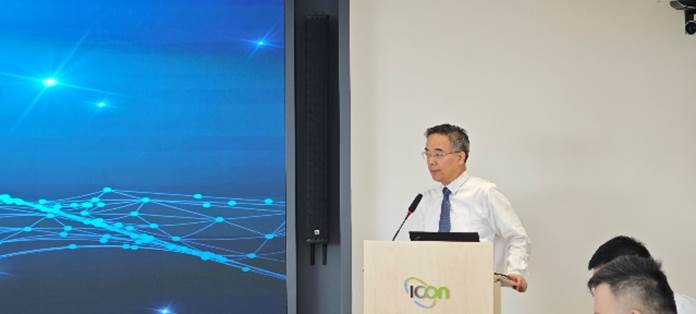
Kang Chongqing delivering speech
In his speech, Professor Kang welcomed the delegation from Imperial College and highlighted that since its establishment in March 2019, the Joint Research Center has conducted several exchange visits and produced many significant research outcomes. Both teams have committed to holding monthly online meetings, collaborating on various international projects, and jointly organizing seven international conference sessions and multiple journal special issues, resulting in the publication of over 20 high-level papers. These achievements reflect the joint efforts of both teams and demonstrate their willingness and capability to contribute to addressing climate change and energy transformation.
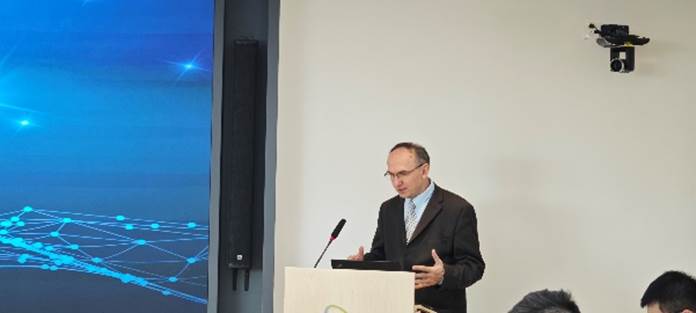
Professor Goran Strbac deliverying speech
Professor Goran Strbac reflected on the research outcomes produced by the collaboration between Imperial College and Tsinghua University under the framework of the Joint Research Center. He noted that both teams have overcome numerous challenges and achieved fruitful results in the fields of energy and power, setting a model for international scientific cooperation. This also underscores the importance of international collaboration in addressing climate change and energy transition, and he hopes to deepen the exchange and cooperation between both parties with the support of the Joint Research Center.
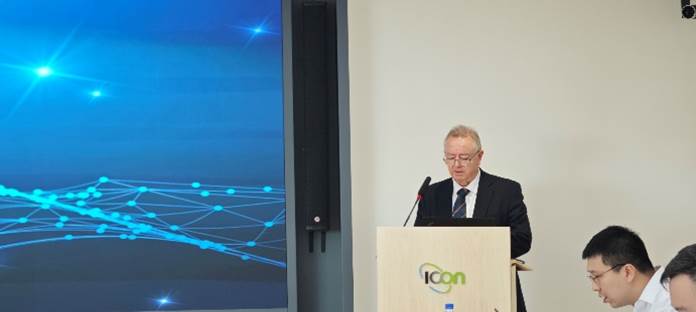
Professor Bob Cryan delivering speech
In his address, Professor Bob Cryan detailed the cooperation between the UK and China in the energy sector, emphasizing the significance of the Joint Research Center and its research outcomes. He expressed that the collaboration aligns with the global development strategies of UK and Chinese universities, and indicated the UK side’s willingness to explore broader cooperative avenues with Tsinghua University.
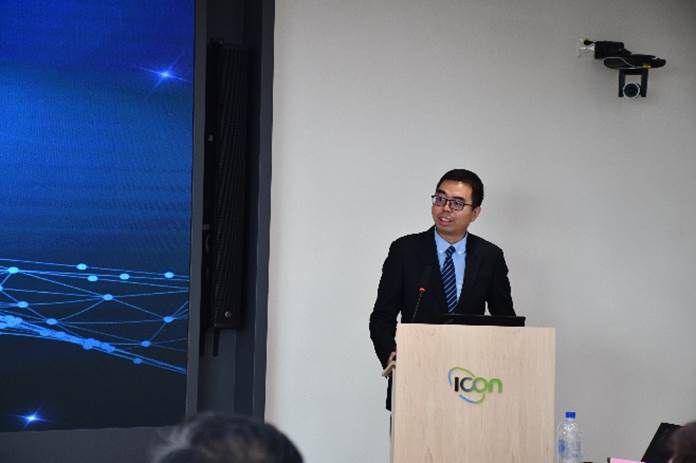
Associate Professor Yu Le delivering speech
Associate Professor Yu Le introduced the Carbon Neutrality and Energy System Transformation (CNEST) project, which aims to establish a sound and scientific organizational structure and operational mechanism. This initiative will unite international energy professionals to reach a global consensus, focusing on the theoretical construction of smart energy internet systems and key technologies for global carbon emissions networks. The project seeks to create a collaborative innovation research platform for global scientists and engineers to foster an open energy system innovation ecosystem with broad international participation.
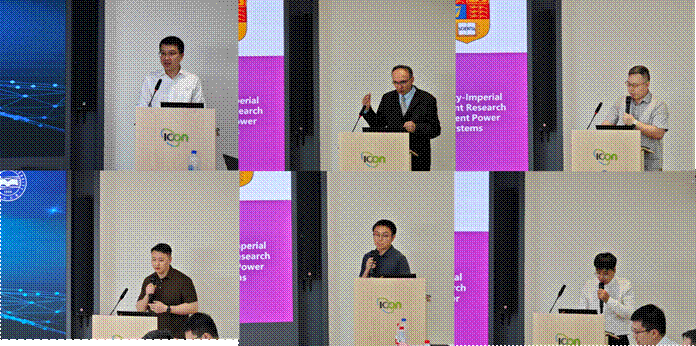
Invited reports
Following this, Associate Professor Zhang Ning from EEA moderated the invited report session. Professor Goran Strbac and Associate Professor Zhang Ning reviewed the progress of the Tsinghua University - Imperial College Joint Research Center for Smart Power and Energy Systems. Dr. Wang Yishen from the State Grid Smart Grid Research Institute presented on “Intelligent Computing for Power System Operations.” Assistant Professor Sun Mingyang from Peking University spoke on “AI-Based Intelligent Decision-Making for Low-Carbon Energy Systems.” Lecturer Ding Shixing from Yanshan University presented on “Economic and Low-Carbon Coordinated Analysis of Integrated Energy Systems and Carbon Neutral Transition.” Finally, Lecturer Chen Bolin from University College London reported on “Adaptive Estimation and Its Applications in Power Systems.”
Finally, after the five keynote presentations, Zhou Feng, director of the Clean Power Program at the Energy Foundation; Dr. Bodali from the UK National Research and Innovation Agency; and Professor He Kebin, an academician of the Chinese Academy of Engineering and director of the Tsinghua Carbon Neutrality Research Institute, delivered closing remarks.
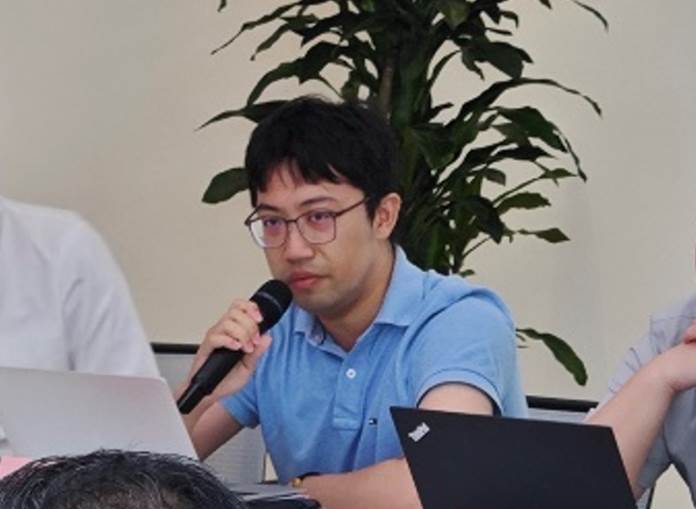
Closing remarks by Zhou Feng
In his closing remarks, Zhou Feng stated that the collaborative goals of the Joint Research Center align with the Energy Foundation's vision for achieving carbon neutrality. He expressed the Foundation's commitment to increasing support for research in smart power and energy systems.
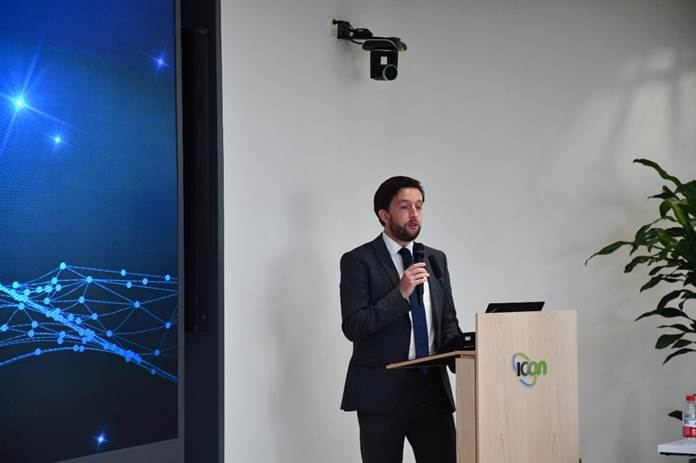
Closing remarks by Daniel Brooker
Daniel Brooker highlighted that UK-China collaboration is a vital means of addressing international climate change and achieving carbon neutrality. To deepen cooperation, he emphasized the need for systematic innovation and industry-wide collaboration. He encouraged continued project collaboration and funding to address challenges in the path to carbon neutrality. This seminar established a banner for international cooperation in promoting the goal of carbon neutrality, and he looked forward to further outcomes from both parties.
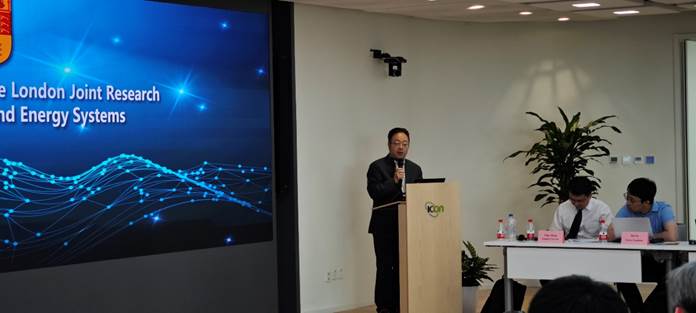
Closing Remarks by Professor He Kebin
Professor He Kebin remarked that the Joint Research Center has made significant explorations in studying low-carbon economy and secure power energy systems. He emphasized that achieving carbon neutrality requires coordinated efforts across generation, grid, load, and storage. To this end, it is essential to analyze energy flows, material flows, carbon emission flows, and information flows from a systemic perspective. Collaboration among all sectors and industries is necessary to work together towards the carbon neutrality goal. He also called for researchers from both China and the UK to strengthen their collaboration, extending beyond this seminar and the Joint Research Center, to address global climate and environmental issues.
The Tsinghua University - Imperial College Joint Research Center for Smart Power and Energy Systems was established in March 2019 and renewed its cooperation agreement for a second phase in December 2022. It conducts collaborative research in various fields, including new power system planning, integrated energy systems, low-carbon energy transition, and power electronic equipment. The center has undertaken two international cooperation projects, published over 20 joint papers, and trained more than 50 PhD and postdoctoral students. Based on this Joint Research Center, an international cooperative laboratory for innovative new power systems was approved by the Ministry of Education in 2023. The day before this seminar, the Joint Research Center held its annual meeting at Tsinghua University. The successful completion of this annual meeting and academic seminar marks an important milestone in the development of the Joint Research Center. Tsinghua University and Imperial College have strong complementarity in research on smart power and energy systems, and the Joint Research Center will continue to leverage both parties' strengths to promote high-level research in the energy sector.

















 News & Events
News & Events